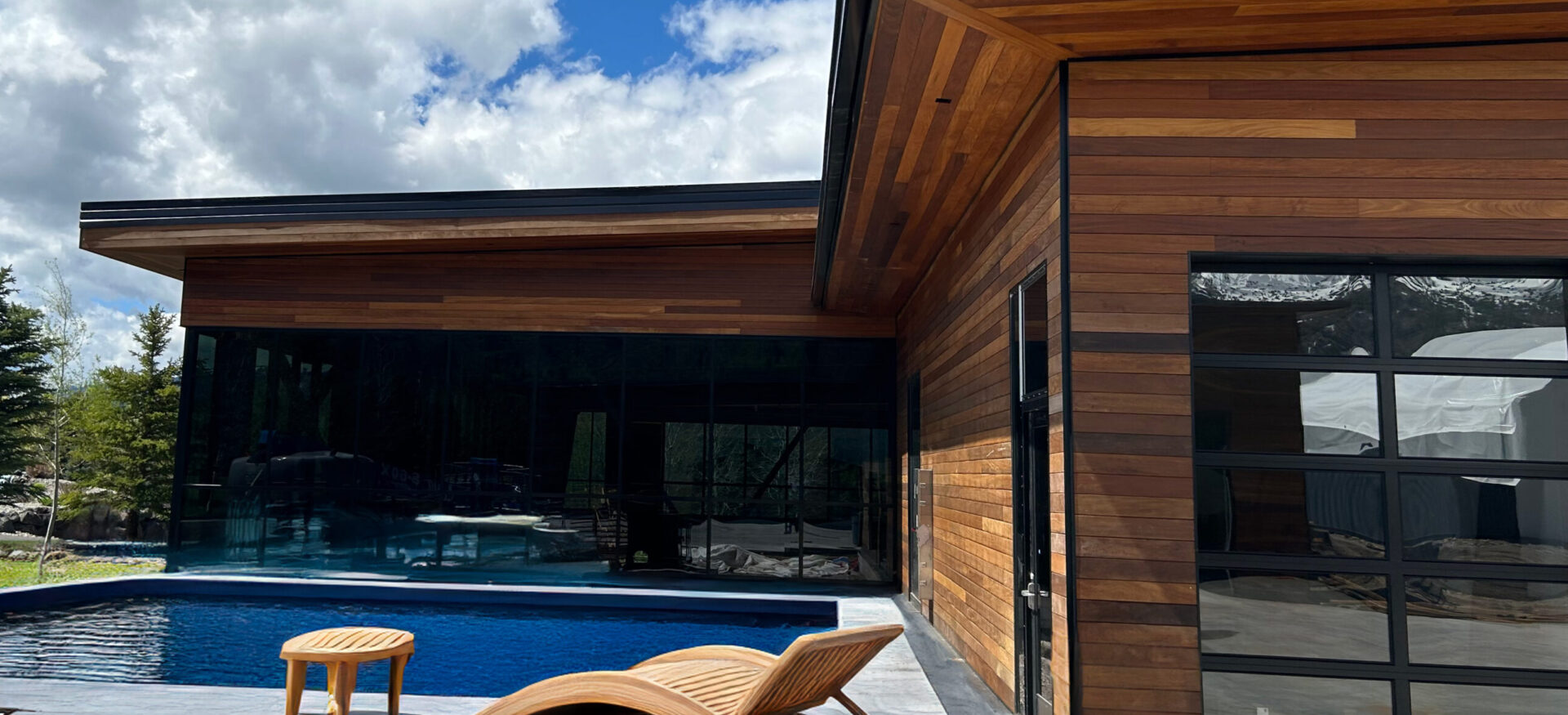
Thermory BenchMark Red Oak
Quercus Rubra
Red Oak is probably one of the most commonly used North American hardwoods. It has long been the standard that other wood species are held to. “As hard as Oak” is a common way to describe woods. But Red Oak is not a good exterior wood, and that has always been the drawback. Thermally modified Red Oak changes all of that and gives us a rot and water resistant species which is dimensionally stable with a deep color usually only found in exotic species.
We have partnered with Thermory and their line of thermally modified woods, because of their outstanding quality control and expertise that is next to none throughout the thermal modification process. If you have ever worked with Red Oak, then you understand what you are getting with thermally modified Oak. It has the same working properties, just without the seasonal movement. Technically, it is slightly harder and less dense than traditional kiln dried Red Oak, but this is a negligible difference.
Thermally modified Oak can still be milled and joined, and glued, nailed/screwed and finished like Oak. The biggest difference is the color. Instead of the pale brown and red undertones, you now have a deep brown color that can even darken to black when finish is applied. It will still fade to a silvery gray if desired, or it can be finished and maintained annually to retain the natural color.
And speaking of color, we feature thermally modified woods throughout our Alpha Cladding lines, because we love its performance, how it takes a finish, texture and wood grain under finish. We love experimenting with Thermal Red Oak and new finishes; reach out today and let’s make your design come to life
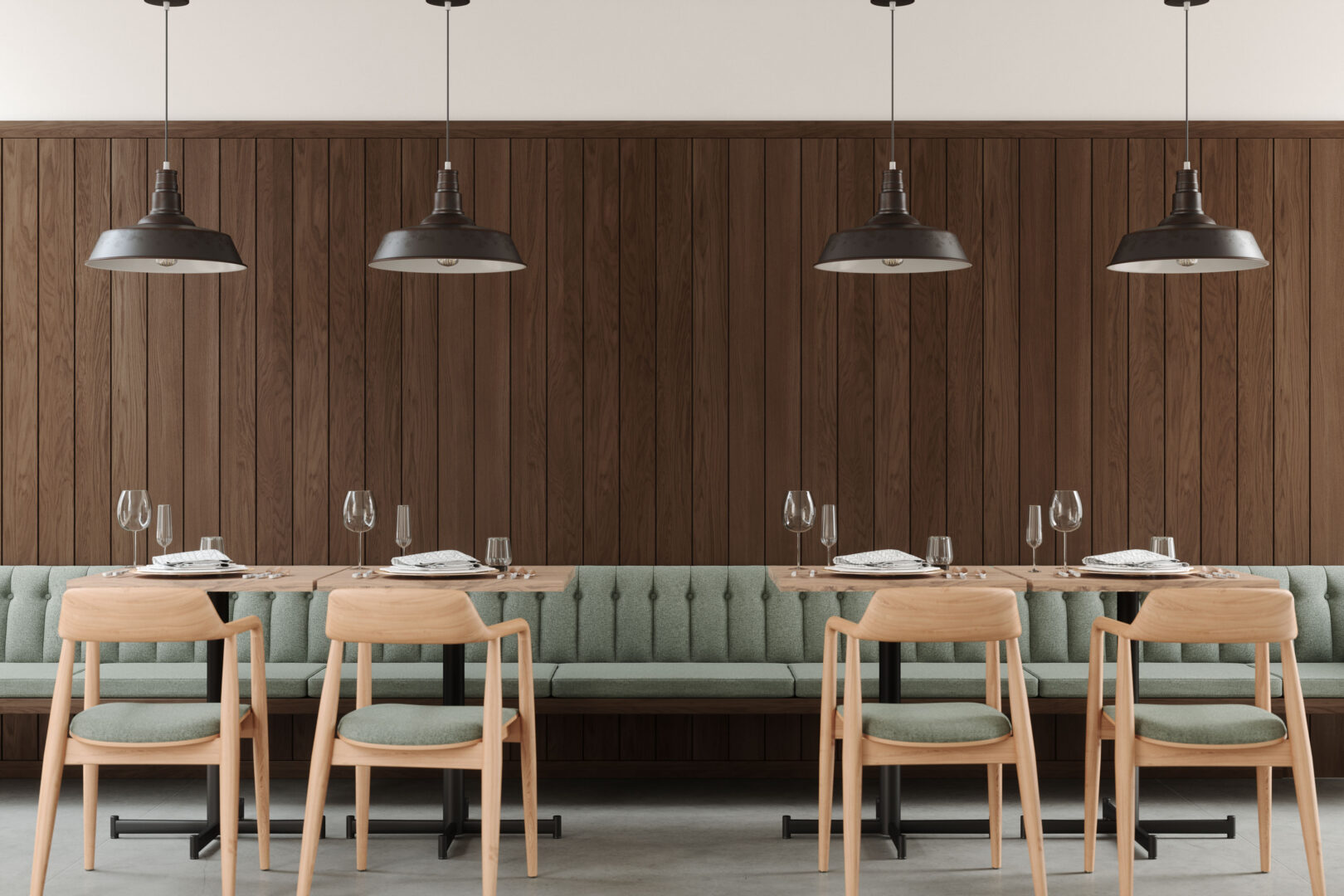
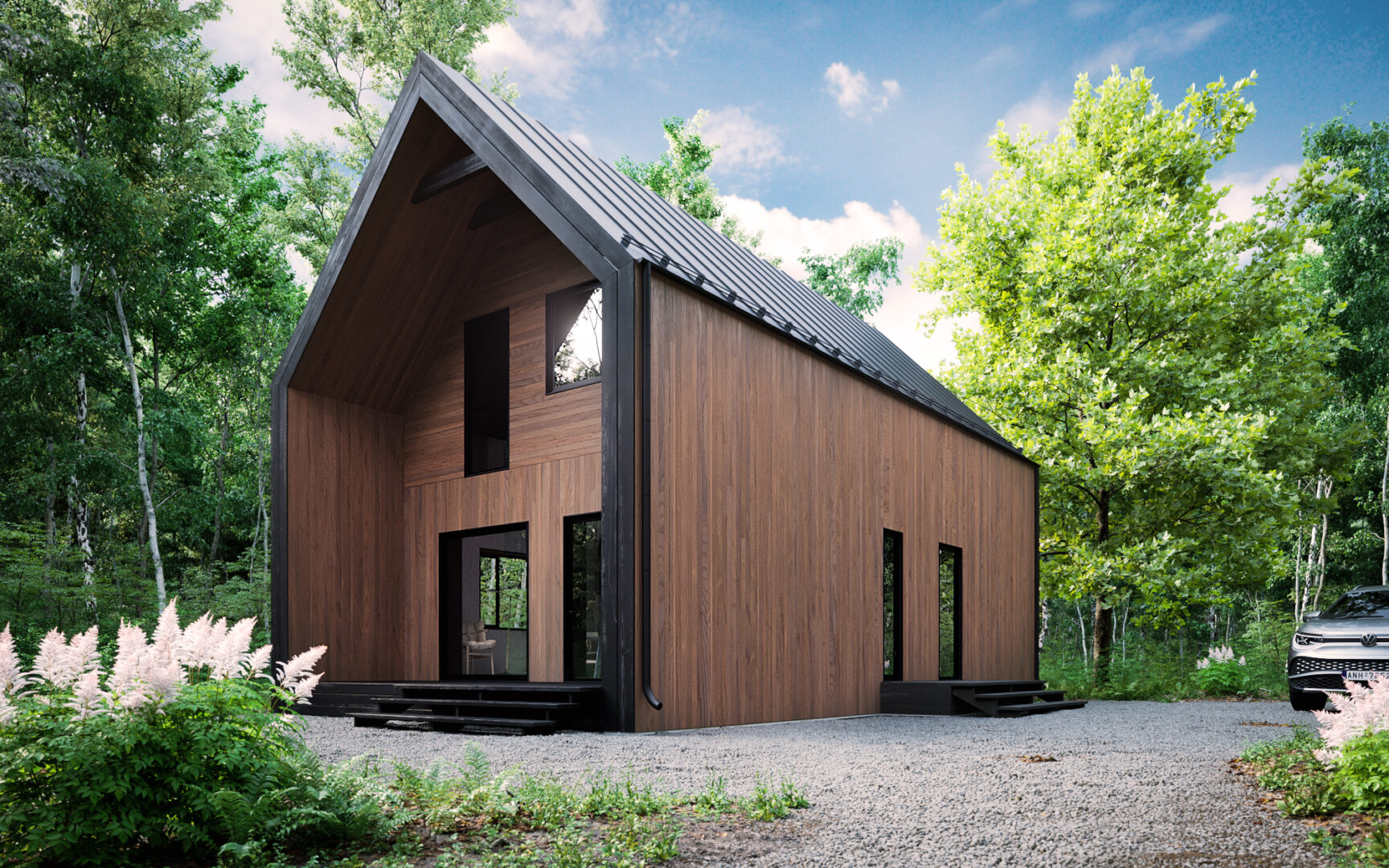
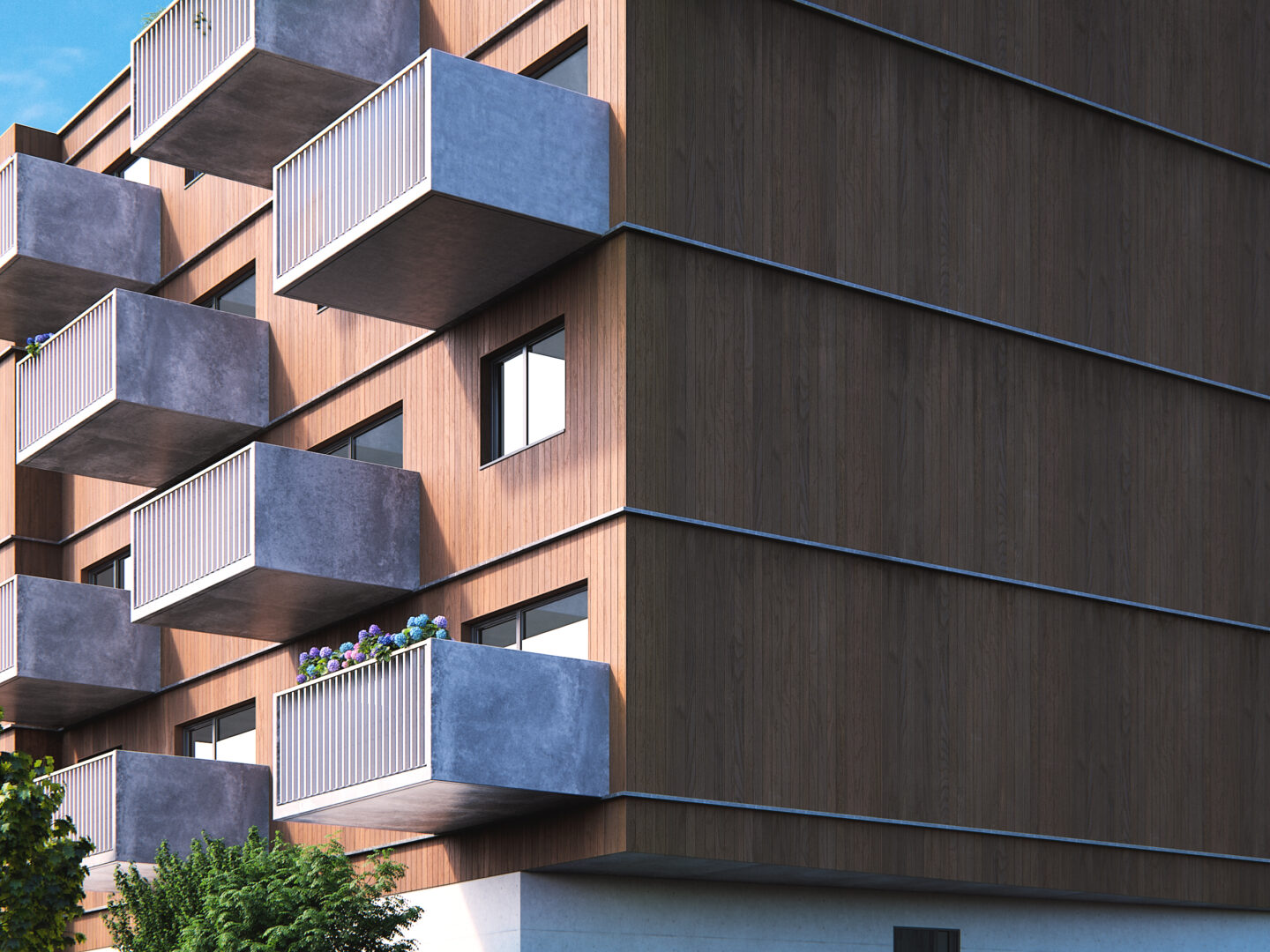

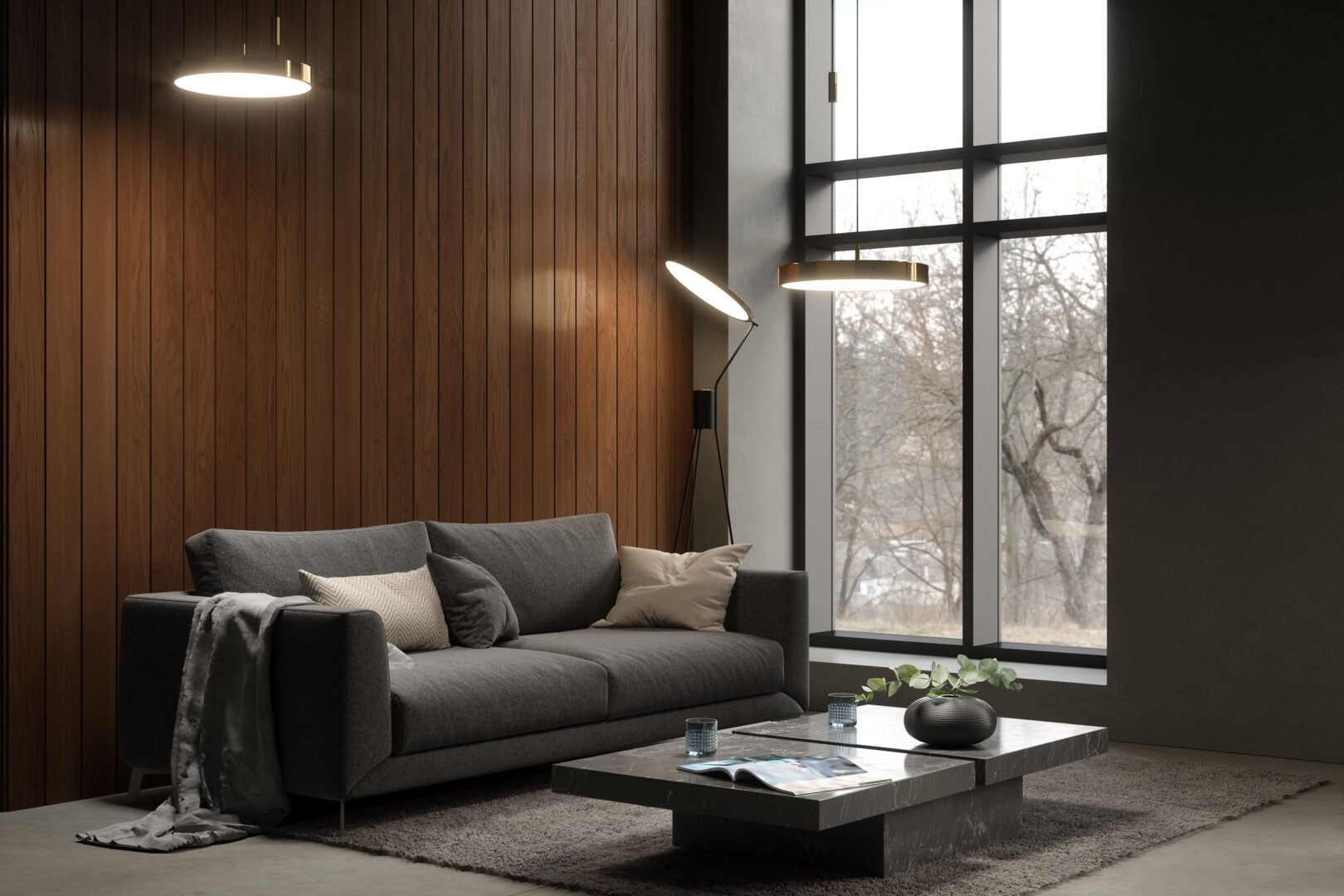
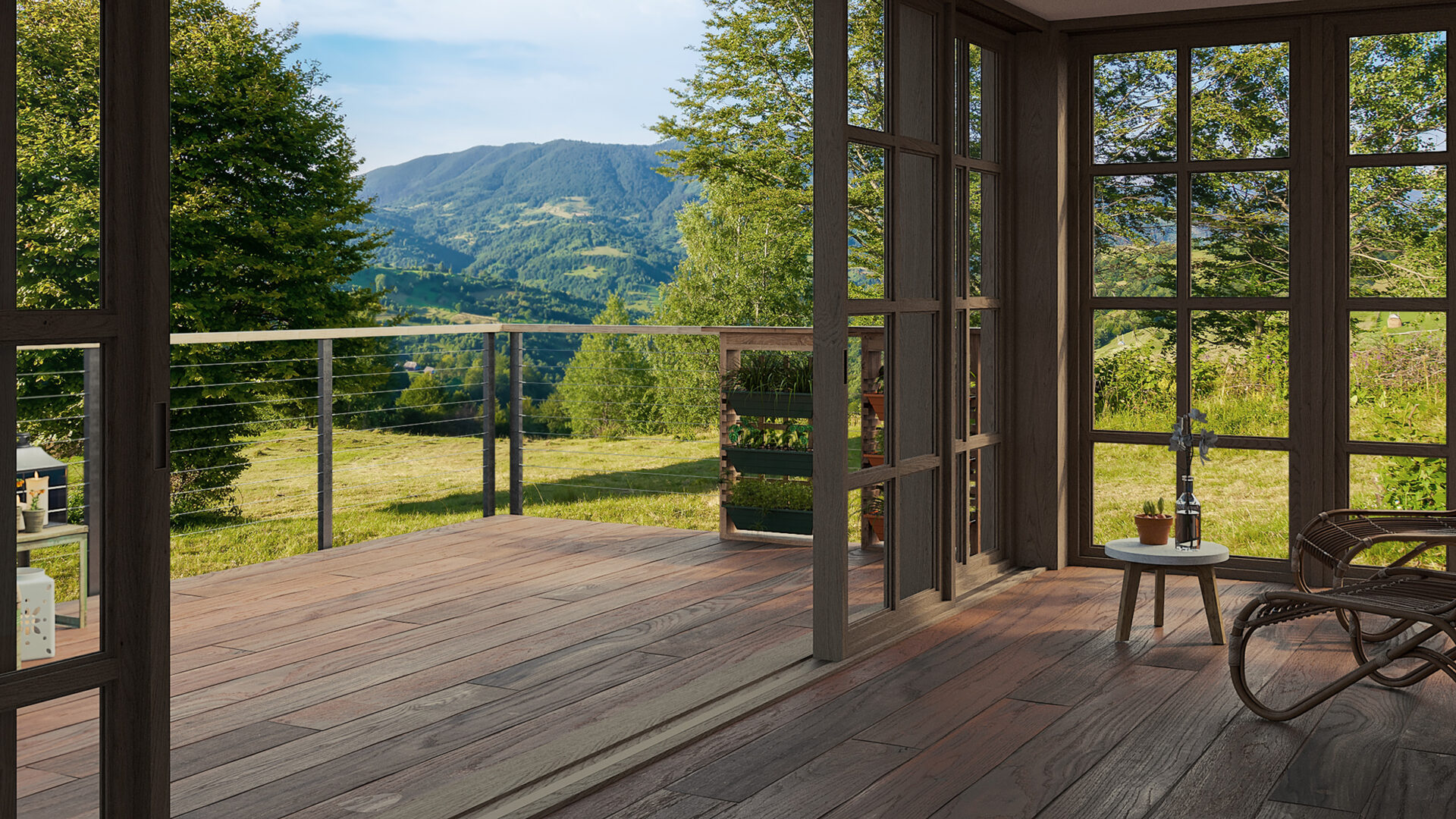
Thermally Modified Red Oak can be used with confidence both inside and out. Or moving from in to out, if you want. We can mill it into hundreds of profiles or custom looks for interior accent walls, ceiling, porch flooring, porch ceiling, soffits, cladding, decking, you name it.
Learn More about Thermally Modified Woods
It’s a complex subject, and while not a new technology, the market is full of options and new products every day.

Thermory Benchmark Oak can be used for decking or cladding, and it can be made in a number of profiles for your specific application. Thermo-Oak is rated as Class 1 for 25+ years resistance against decay, so you can trust it for all of your exterior projects. It is available end matched with Thermory’s JEM joint for a seamless and strong connection that does not have to be over a joist. More importantly, this means less waste on the install without having to use longer lengths or trimming based on joist spacing. For more information on JEM joint strength, download the strength test report from Thermory
THERMALLY MODIFIED Red Oak CHARACTERISTICS
As stated above, if you have worked with Red Oak, then you know the properties of Thermo-Oak. Most things will be the same, but there are some exciting differences like the tangential and radial movement numbers. The hardness runs about 1200, so it is outstanding for screw holding capacity and for holding moulded details. The thermally dried nature makes it more lightweight than unmodified Oak.
Thermo-Oak is also VERY thirsty, and it will soak up finish fast. It can require additional coats than you may be used to, and certainly the open grained nature absorbs even more finish. Likewise with gluing. Even though you can use any typical wood glue, you may find that the open time on joinery is shorter, as the Oak soaks up the moisture of water based PVA glues very quickly. For a longer open time, polyurethane glues or epoxy is recommended.
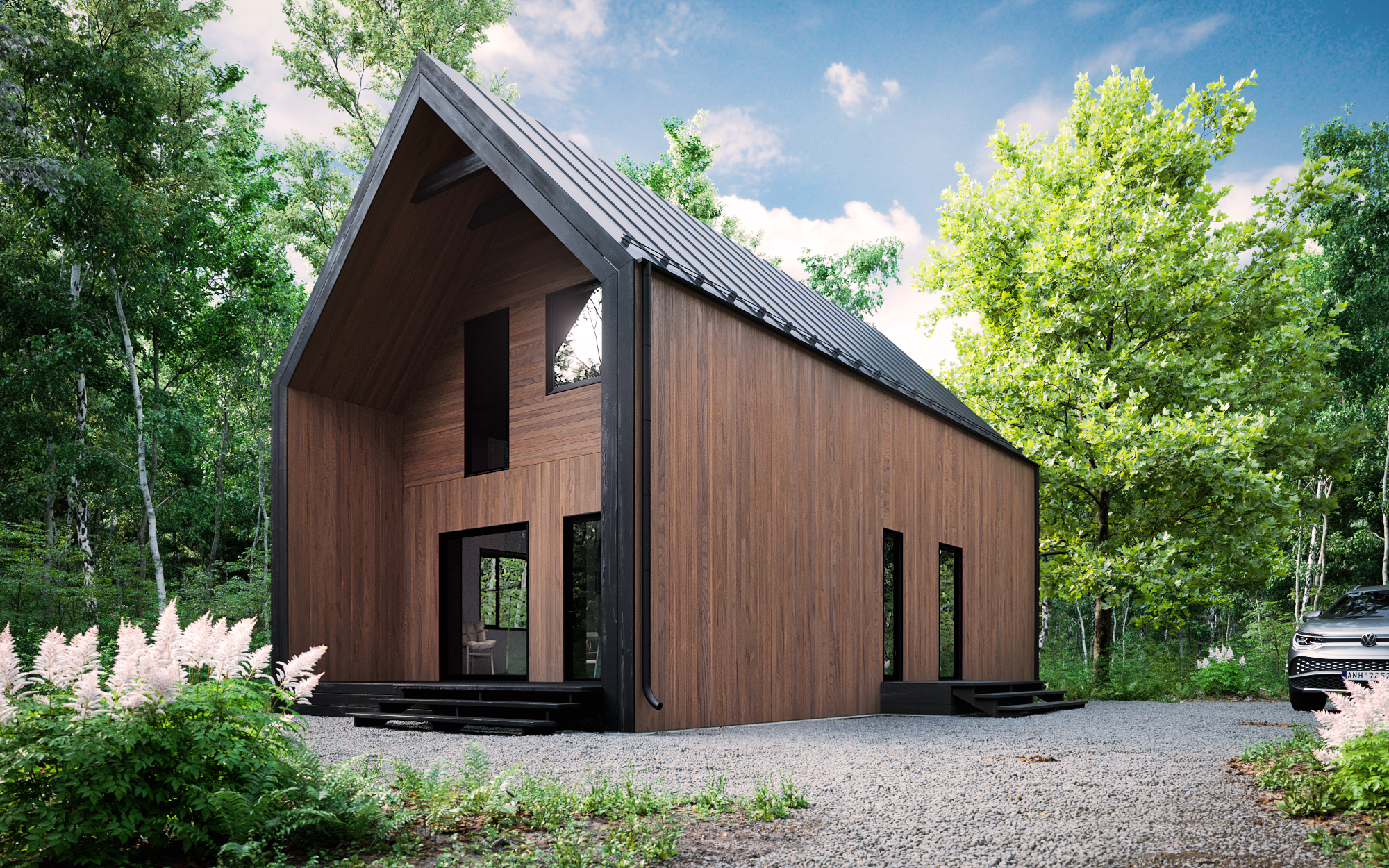
Thermory Oak Sizes

Dimensions are specific to the application, and a variety of profiles are available for cladding and decking. We can provide custom milling using any of our thousands of profiles, as well as give you a custom finish option to suit your project.

Why Thermory? After searching for the right brand to partner with in the modified wood space, we feel Thermory has the right amount of generational knowledge and expertise to complement our history and high regard for the finest quality products and robust, ethical sourcing practices


